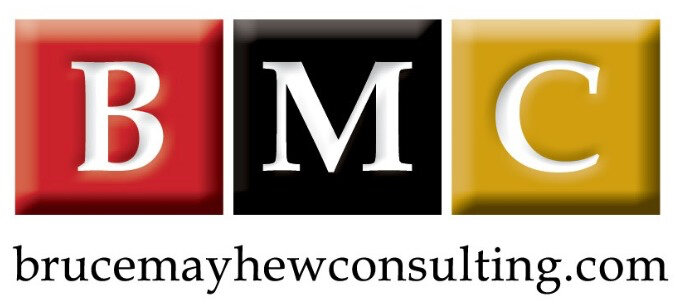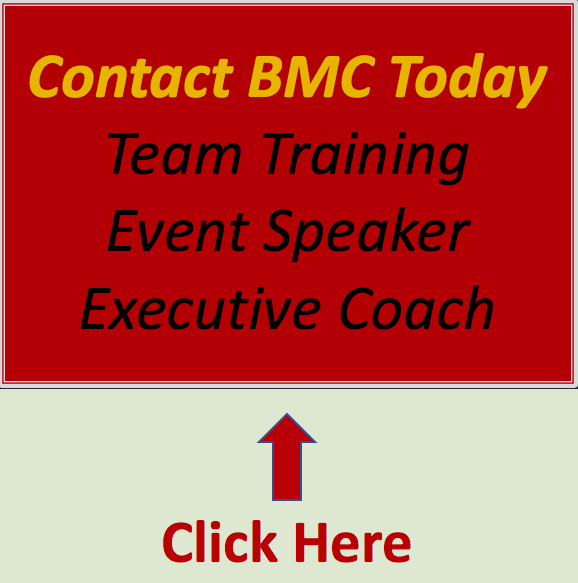Be A Great Leader For Generation Z
/While Generation Z have just begun entering the workforce, it is important to pay attention to them because they will soon be the second largest population at work.
Generation Z expect their career journey to be unique. This isn’t an ego thing; it is an experience thing. Gen Z grew up being in the middle of constant social and technology change with unlimited access to information. They have witnessed and fought against racism, sexual harassment, gun violence and income disparity while they have supported diversity, equity and inclusion (DEI) and climate change solutions. Many are well-travelled and have had local and global influences from travel and/or from their multicultural family influences. Add all of this together and it often means that Gen Z are socially liberal and financially conservative.
On the skills side, if you are looking for an employee who is tech-savvy especially when it comes to digital platforms and is used to disruption, then a Gen Z employee is likely to have these skills. Fast-paced technology advances have shaped their social experiences. They are also adaptable – a trait that can be a great asset for an employer especially when Gen Z employees can flex their creativity and innovation skills. Many Gen Z have parents who have gone to college and/or university and have grown up with a focus on higher education. As such, Gen Z are likely to go to college and/or university as well. Generation Z are often entrepreneurial and like to build / create things. Don’t be surprised if they have a side hustle or are part of the gig economy.
And yes, while embracing a multi-generational and a multi-cultural workforce takes effort, you also get to enjoy all the benefits from proactively integrating a talented, diverse population into your inclusive workplace culture. Alternatively, not paying attention will also take a lot of a different type of effort that will be less positive and it is unlikely you will experience many of the benefits.
Your New Generation Z Employee
If you just hired a Gen Z, this may be their first serious experience working and interacting in a professional work environment. It is reasonable to anticipate they will have little insight into what you expect. Everything from working in person, professional etiquette, building professional relationships professional deadlines, managing difficult conversations, emotional triggers, and receiving constructive feedback may be new frontiers.
Let’s recognize that due to Covid-19 restrictions, the last few years of a Gen Zers education and/or the first few years of their professional careers have likely been 100% remote and 100% online (isolating). This means they have experienced all the convenience of not having to travel to school or work. And when it comes to working in the office, they may also be feeling a bit restricted with less freedom and autonomy over where and when to work. Unfortunately, while they are right that they may be able to get specific tasks completed more quickly at home, they may not be aware of the many learning / growth, career and social benefits that come from being social and working in-person with their co-workers and you… their leader. These experiences will impact their communication and work styles, expectations and ability to build relationships.
And while Generation Z are used to working remote and when working in a hybrid environment they may need help / patience with their communication style, getting used to receiving constructive feedback, and seeing the benefits of working in-office/in-person. It is also unlikely you are giving them too much detailed instruction or feedback. This is certainly a place (and generation) where ‘more is better’ is appreciated.
Have I made you want to run in the other direction yet? I’ve got more because Gen Z want the whole package.
Generation Z employees like fast-paced work, learning, and experiences where they have impact. Gen Z want their employers to be their partners and respond well to leaders who are experts. They want to learn so are looking for leaders and companies that will mentor them and give them opportunities to grow and gain experience which is far more likely when working in person. Gen Z want to understand why something is done. They are used to asking questions and getting (or looking up) the answers. This may be because they grew up with unparalleled and immediate access to information that fed their curiosity.
Can all of this be done within a 100% remote culture? Yes, but it takes a lot of hard work and commitment by everyone to create and sustain a highly effective, highly communicative, highly collaborative (and trusting), remote corporate culture.
And of course, like all of us Gen Z want to be able to trust and be trusted. To earn their trust an employer must recognize how important Gen Z social and global values are. Generation Z employees want to see their values reflected in the company. They value transparency of strategy, clarity of purpose for the company and their team, and to be able to see the impact of their collective contribution. Gen Z also want to have clarity of purpose for their position including what is expected of them, why it’s expected, and to be able to point to the impact of their individual contribution. And of course, they want equality, respect, to feel safe. And as mentioned earlier they want the opportunity to grow / learn, access to decision makers, to make a difference, and honest recognition.
But as you can imagine Gen Z have many stresses. For example, their first-hand experience of continuous change, ultra-connectivity and global unrest has impacted their mental wellbeing. They have also grown up with a greater emphasis on personal wellbeing and less negative stigma associated to mental illness. This means they may be more attuned to their own mental wellbeing and health than other generations. As an often more outspoken generation, Gen Z are more likely to speak up and care for their work-life balance and their mental and physical health.
How We Can Make The Experience Great
With hybrid work being the norm in most cases, it is important for employers to have clear expectations and consistently champion them whether people are working remote or not. Accountability to these expectations as well as to their work / teams is a must. With a multigenerational and multicultural workforce that means looking at every aspect of our workspace from someone else point of view / perspective.
Whether it is day-to-day communication or workplace expectations, we cannot take anything for granted or assume the other person knows what we mean or even uses the tools/software we share in the same way. What is ‘normal’ for you with 20-years of work experience will not be ‘normal’ for someone with 2-years of work experience that began during the Covid pandemic. And as I’ve suggested earlier, it is not only different generations that have different expectations. Different cultures have different needs, values, communication styles and different problem-solving abilities. And because values, trust and managing expectations are so important, successful leaders are now including discussions about expectations during the interview process.
While offering flexible work arrangements is more important now than ever, we must make sure we don’t lose sight of a feeling of team. Bring your team together whenever possible. One common practice is to make one day a week mandatory for everyone on your team and then allow employees to choose one or two other days. On your shared days in office, have a formal team meeting / team update. Also schedule events that are best done in-person like project brainstorming and social team-lunches. The goal for leaders is to make in-office days learning experiences that help teams bond… and get their work done.
Another way to engage younger employees is to let them know you notice their contribution. Boost this by offering them (and any member of your team), an opportunity to share their experience during a project meeting or even by giving the team a short group training event. When they feel safe and respected, the opportunity to teach (help) others can be a strong draw. At the same time, this may give older, more experienced employees the opportunity to partner and build stronger relationships with their younger co-workers. All training you offer will lead to personal and professional growth for your team members and will help your team build trust and community with each other and break down intergenerational biases and stigma.
Conclusion
To summarize, Generation Z like fast-paced environments that stay relevant with technology and social values. They want their work and their team/company to make a difference and align with their personal values. Learning and new experiences are important, but they sometimes struggle with constructive feedback. Transparency is also important. Gen Z will ask “why” a task is relevant… and their leaders should expect suggestions.
When you create a work culture that respects everyone for their individuality and is clear and consistent about company vision, values, expectations and accountability from day one, then I do believe you can create a culture where everyone is celebrated for their uniqueness while also find a path to support each other.
Multigenerational workspaces that boast diverse skills, experiences and cultures lead to greater creativity and problem solving. They also lead to more impactful peer mentoring and peer learning experiences that benefit each other, likely create greater loyalty and help make your business a great place to work that is also… highly productive.
Hiring the right person is far more complicated now so managing expectations must start during the job interview. You want to get the right skills – but you also want to get the right culture fit. Doing this will help you create a highly engaged, dependable employee / partnership. Workplaces cannot be all things to all people. Workplaces must have a dependable culture – noting that dependable does not mean stagnant.
While Gen Zers may prefer to work remotely or even non-traditional work hours, it does not mean they are naturally less engaged. It also does not mean you have to bend to their every whim. Remember, Generation Z want transparency and to collaborate. They are flexible, especially when there is purpose, and they feel respected. Providing opportunities for workplace flexibility, personal and professional growth are elements that lead to a highly motivated, trusted, productive and loyal team that brings creativity and innovation to every opportunity.
Thank you for spending time with me today and reading ‘Be A Great Leader For Generation Z.’
Bruce
Learn More About Bruce Mayhew
Toronto corporate trainer and executive coach Bruce Mayhew Consulting is in the people business… it just so happens that training and/or executive coaching is involved. Let us help you improve your productivity and employee engagement.
To learn more about how leadership training can to improve your skills call us at 416.617.0462.
Bruce Mayhew Consulting's most popular programs are Email Etiquette Training, Difficult Conversations, Generational Differences, Leadership Skills Training and Time Management Training
Related Workshops That Drive Business Success
Toronto based corporate trainer and executive coach Bruce Mayhew Consulting proudly offers leadership training and professional development.



